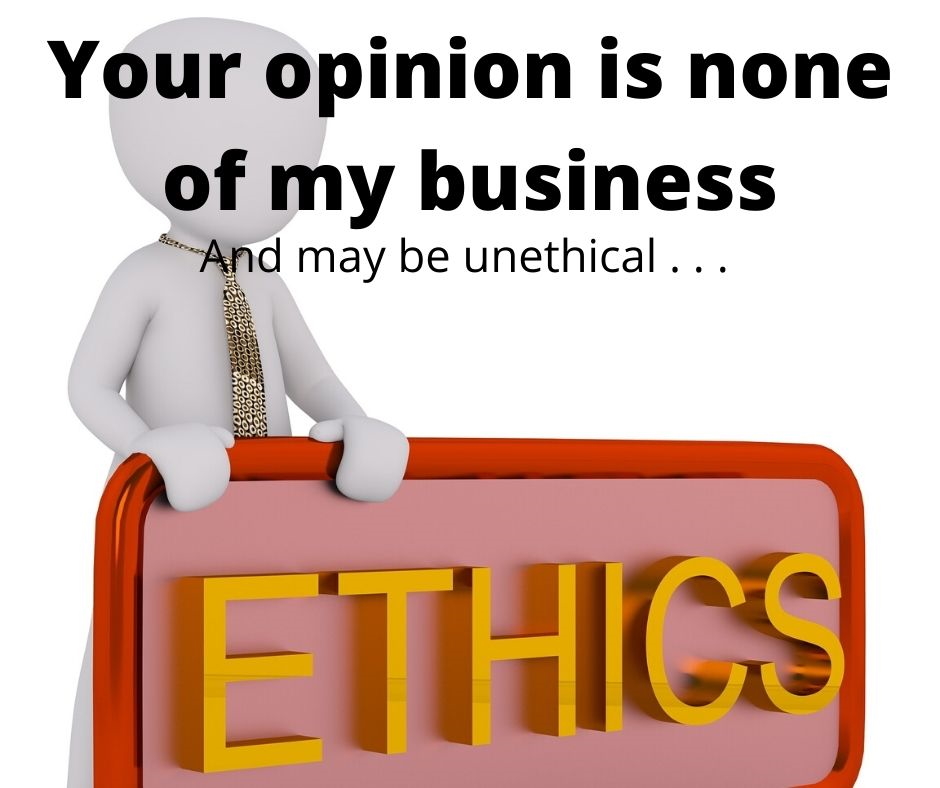
I am a true proponent of being authentic on social media, including blog posts, videos, and all other social media.
Social media is about connection. It was originally designed so that you can keep in touch with friends and family, see what they were up to, and keep in contact with them. Then the marketers took over and many social media posts became glorified ads for services and products.
In 2019, Stackla, a visual content search engine of UGC (User Generated Content), conducted a survey and as part of their key findings, they discovered that 90% of consumers say authenticity is important when deciding which brands they like and support and that 51% of consumers say less than half of brands create content that resonates as authentic.
Recently, in a few different Rainmaking Recommendations, I discussed using the Rainmaking Cycle of marketing, networking, and relationship building as a way to grow your book of business. In each of these parts, being genuine is important. You want your referral sources, clients, and potential clients to get to know you and your personality.
Being authentic means being transparent and honest. It means being clear on your message. It also means owning up to mistakes and trying to fix them when they are made.
However, there is a difference between authenticity and espousing your opinions.
The Oxford English Dictionary defines opinion as “A view or judgment formed about something, not necessarily based on fact or knowledge.”
And of course, you’ve heard the oft-quoted line from the Dirty Harry movie: “Opinions are like assholes, everybody has one.”
Look, as Clint Eastwood’s character said, everyone has opinions, but as an attorney who would like to build a book of business you would be best served to keep them to yourself, particularly on Social Media and in your videos and blog posts. There are a few reasons why:
- Your opinion may be counter to someone else’s. This means you risk the chance of turning off a portion of the people whom you would like as clients.
- Remember, your opinion may not necessarily be “based on fact or knowledge.” As an attorney, your clients want to trust that what you are telling them IS based on facts and precedents. By holding a particular opinion that is found to be untrue, you may wind up losing your reputation and potentially your career (as has been evidenced by some attorneys this week).
- And, more importantly, you may be violating ethics rules.
The American Bar Association Model Rule of Professional Conduct 1.7(a) on Conflicts of Interest states:
(a) Except as provided in paragraph (b), a lawyer shall not represent a client if the representation involves a concurrent conflict of interest. A concurrent conflict of interest exists if:
(1) the representation of one client will be directly adverse to another client; or
(2) there is a significant risk that the representation of one or more clients will be materially limited by the lawyer’s responsibilities to another client, a former client or a third person or by a personal interest of the lawyer (emphasis added).
What we are most concerned with is “positional conflicts of interest.” which is indicated by the emphasis added. The rule was originally developed to describe a situation in which a law firm takes a specific position when representing a client and then takes the polar opposite position when representing another one in a completely unrelated matter.
And this is relatively easy to understand in the context of taking on new clients. But how does this extend to your opinions on social media?
I often talk about the following example during my CLE presentation:
Every time there is a school shooting event that takes place, my social media feeds light up with people on both sides of the gun control issue. For argument’s sake, you, the attorney, write on social media:
“I think anyone who commits a crime like this should be drawn, quartered, and strung up by their toes.”
That’s an opinion, and in most instances, you would be entitled to say such things (but as mentioned above it may not be the smartest thing in the world) . . . Unless you are a criminal defense attorney or public defender who has to represent clients who allegedly commit crimes. Then this creates a positional conflict of interest in which your clients may think that you will not represent them to the best of your ability because of your opinion.
This is when your social media becomes a positional conflict and an ethics rule violation. And, every state has this rule in their ethics quiver but some, like DC, New York, Missouri, and others have formal ethics opinions to address this.
Let’s get back to how it will affect your Rainmaking.
Your opinion is just that – yours. And if it offends or even just goes against what your potential ideal client believes, you have just lost an opportunity for a new client.
Please do not think that you can separate your personal social media from your professional. This separation does not exist because, as we have seen in many instances over the years, your name (even if you use an anonymous handle/avatar) can be searched and can be connected to your professional life.
Keep your opinions to yourself.
Speak Your Mind